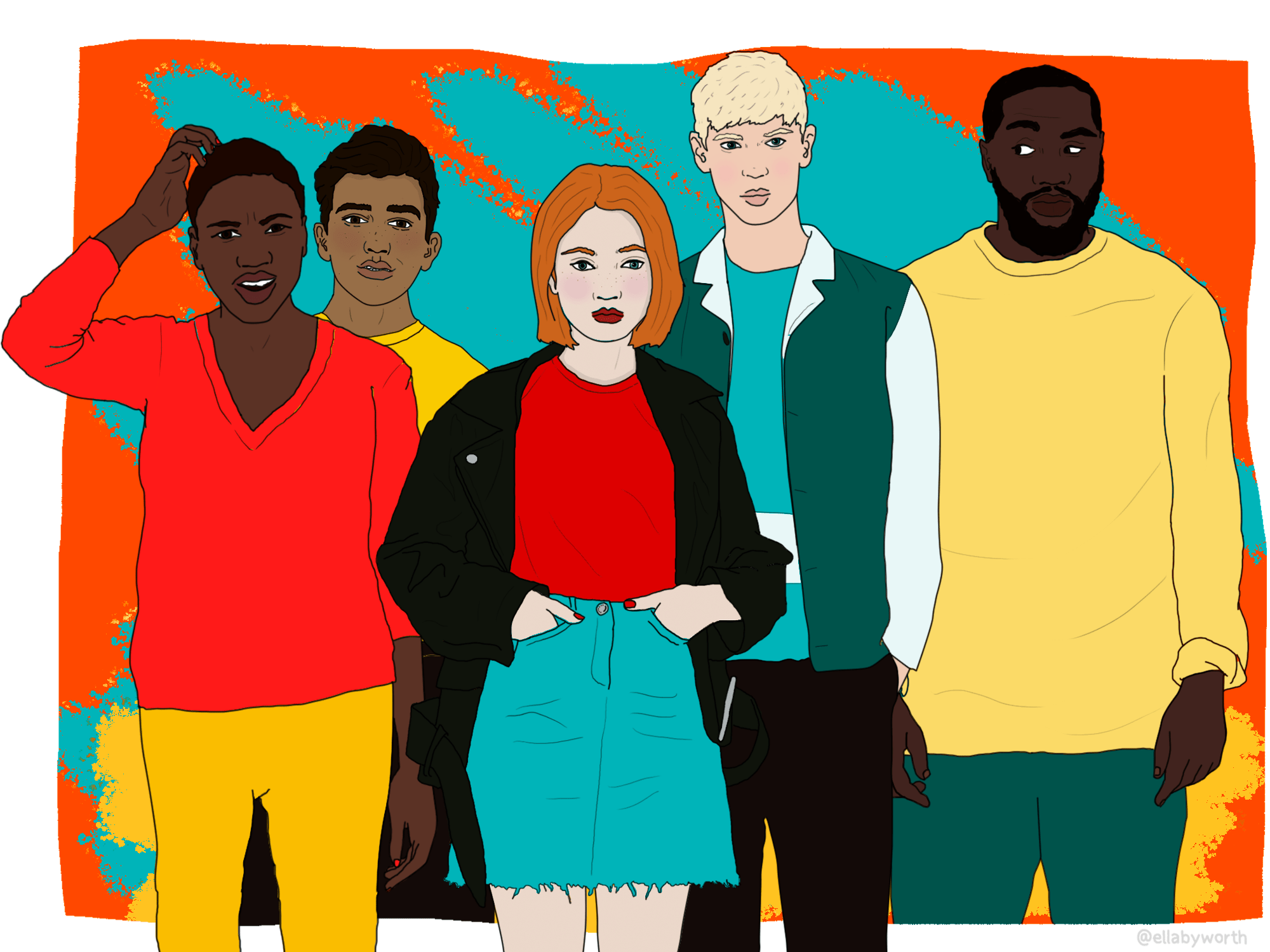
It’s not uncommon for new students to experience mental health difficulties when they start at university even when the world isn’t in the middle of a pandemic.
On World Mental Health Day, it feels particularly important to address why students could be struggling and what they can do to feel better.
Being away from home for the first time, mixing (sometimes exclusively) with totally new people, academic stress and the pressure to get the most out of the uni experience can all contribute to the development of mental health problems.
Now pile those issues on top of the isolation of remote classes and having to lockdown or self-isolate in halls with a bunch of strangers that you may or may not get along with and there’s a good chance this environment could result in a swathe of young people needing help, and fast.
The minds behind therapist-finding tool Counselling Directory have seen a 175% increase in 18-24 year olds looking for mental health support this September compared to the same month last year.
Visit our live blog for the latest updates Coronavirus news live
From 23 March 2019 – 9 October 2019, 52,000 people aged 18-24 were using their resources, while from 23 March 2020 – 9 October 2020, 123,000 people in that age group were going to them for help. People that age used to make up 9% of their total visits before the pandemic, and now they make up 21% of visits.
But why do new students tend to face mental health struggles even in years when there isn’t a pandemic on? Counselling Directory member Pam Custers tells Metro.co.uk: ‘First year is a massive life change. It’s a transition period. You are foisted in with a whole bunch of people who will come from a whole range of backgrounds.
‘Students will more than likely come from a school environment and they have gone through that process over a lengthy period of time, so they would have been within an institution that understood and knew them and saw them as individuals.
‘Then their family and their peers and their friendship group have all been stripped away. Students are going into a new environment with academic challenges and simple life challenges. This may be the first time that people have to do their own washing or cooking or manage their timetable or manage their financial situation, and there’s an enormous amount of pressure to fit in.’

She adds: ‘So one can feel there might be a lot of fun and a lot of people around but it can also feel like an extremely lonely and isolating time.’
As for additional problems faced this year, Dr Joan Harvey, chartered psychologist and senior lecturer at Newcastle University, tells us: ‘If you are in a flat with five or six others, you at least have a bit of space and people to talk to. Or you might be worried you can catch it from them.
‘If you are on your own in a bedsit, that is much more limiting and you could really be quite sickened by the same four walls for two weeks… and lonely. Some will be more resilient, others less so.’
Pam says there’s a lot of ‘pressure to go off to university and have fun’ but now, thanks to the pandemic, students’ ‘best laid plans have gone awry’.
She adds: ‘Students go to have freedom and look what’s happened, they’re locked up.’
So what can students do to help their mental health right now?
Psychotherapist Leena Seward put together some tips for us with the help of her daughter Ishana, who is currently in her first year of uni herself and self-isolating. They recommend: ‘Try not to spend all your time on your bed. Instead, try to split your room into micro-zones so that you have different spaces to study, sleep, relax and be active.
‘Keep regular hours so that your day and night times remain in line with daylight hours. The best way to do this is to start your day around an externally defined event such as an online class or lecture.
‘If you are in self-catered accommodation, make it a priority to get grocery supplies delivered and to prepare warm, healthy and tasty meals. These need not be time consuming or complicated but will lift your mood, help you to sleep and think more clearly and help your body to overcome any Covid symptoms you may have.

‘Keep in touch with family and friends. Make set times for video calls and treat them like face to face meetings, with set times to give structure and a sense of control over the shape of your day.
‘Try to stay active, even if this this is only possible in a limited way with the space available; yoga, breathing and relaxation exercises, fitness training, ideally with an online class or trainer.
‘If you are unhappy about something to do with your accommodation arrangements, be pro-active and complain. This can feel empowering and will give you a sense of agency and control. It may even lead to some practical improvement in your situation.
‘When you settle down to watch a movie or favourite series, make sure you choose something positive, uplifting, funny, or inspiring. Avoid horror, violence and anything with an unsettling theme. This will reduce anxiety and improve the quality of your sleep.
‘Plan to have something to look forward to when your self-isolation ends; something special you are going to do, someone to meet or somewhere you are going to go.
‘Remember the bigger picture and try to keep a sense of perspective. You are living through an extremely challenging situation through unprecedented times.
‘Know that you are building strength of character and personal resilience simply by getting through each day. These are qualities that will stand you in good stead in the years to come.’
Structure is a big theme in what’s been recommended to us, with Joan and Pam also citing that as an important way to keep mentally strong.
Dr Joan says: ‘Plan with friends and arrange Zoom meetings to discuss things or to play games. Structure and plan. It will really help.’
Pam tells us: ‘What they have to do is really, really draw on all their resources to organise themselves and have structure in their life. They need to structure their internal life, by which I mean working out how are they going to manage being within a confined space, how are they going to structure their day in terms of working out which hours they’re going to work, which hours they’re going to chat to their friends in the hall, and which hours they are going to spend by themselves so they have some downtime.
‘Especially for new students, because the relationships within the halls are going to be quite new, they will really need to draw on some of the support mechanisms that they have with their family and their friends from school.

‘They need to make sure that they have moments during the day where they are feeling like they’re connected with the outside world, because many of them will be experiencing very high levels of anxiety, and people respond to anxiety in a number of ways with intense emotions.’
She then describes the situation as a ‘pressure cooker’, saying: ‘Either people withdraw and implode, or they can be highly charged and explode.’
She adds: ‘They really need to structure their lives so that they are outsourcing some of their needs. Family Zoom calls, Zoom calls with their friends, playing online games with people who are not within their halls.’
‘It’s really really a terribly difficult time for students to get their head around,’ Pam says, ‘But they mustn’t lose hope.
‘This is transitory, they’re going to get through this. They must pull on every single resource that’s available. They need to speak to the head of their halls if they’re struggling, they need to talk to each other, and they need to call on outside resources.’
Pam also advises: ‘The real message is that it’s okay to not feel okay and to talk about it. The real big message is, it’s okay to phone home and say “I feel rubbish”.
‘Universities, on the whole, have pretty good counselling services, Just make good use of all the resources that are available to you. And don’t feel like you’re a failure.
‘If you are feeling like the pressure is getting too much, reaching out is really the most powerful thing that you can do.’
Need support for your mental health?
You can contact mental health charity Mind on 0300 123 3393 or text them on 86463.
Mind can also be reached by email at [email protected].
Do you have a story to share?
Get in touch by emailing [email protected]
Source: Read Full Article





